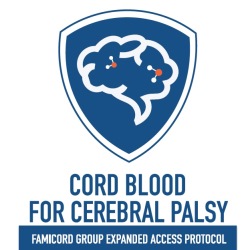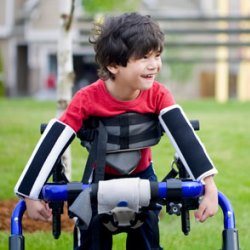Você está aqui
Cerebral Palsy Expanded Access Program in Europe
 Cerebral Palsy patients and families living in Europe now have expanded access to a program of therapy with cord blood stem cells. The new program is open to children that have a diagnosis of cerebral palsy and also have their own cord blood in storage. Patients that meet these conditions can receive cord blood stem cell therapy in a hospital in Poland. The fact that the program is “expanded access” means it is not a clinical trial with strict criteria to participate and limited enrollment. Over time it should be possible to treat hundreds of patients. This is a big advance for these children and their families, when until now there was no such program on the European continent.
Cerebral Palsy patients and families living in Europe now have expanded access to a program of therapy with cord blood stem cells. The new program is open to children that have a diagnosis of cerebral palsy and also have their own cord blood in storage. Patients that meet these conditions can receive cord blood stem cell therapy in a hospital in Poland. The fact that the program is “expanded access” means it is not a clinical trial with strict criteria to participate and limited enrollment. Over time it should be possible to treat hundreds of patients. This is a big advance for these children and their families, when until now there was no such program on the European continent.
The term “expanded access” comes from the FDA in the United States, where it is used to describe programs that enable patients with a “serious” disease or condition to gain access to an “investigational medical product”, one that has been proven safe but the efficacy is still under study, when there is no comparable or satisfactory alternative therapy.
The first expanded access program (EAP) of cord blood stem cell therapy for cerebral palsy launched in the United States at Duke University in Oct. 2017, under FDA registration as clinical trial NCT03327467. At the Cord Blood Association annual meeting in Sept 2019, Dr. Joanne Kurtzberg of Duke stated in her talk that to date over 320 children have received treatment through this program.
The world’s second EAP, which is in Europe, was launched in Oct. 2019 by FamiCord Group, Europe’s largest network of family cord blood banks. Initially, FamiCord clients will have priority access to the new EAP. Initially, all therapy will be at University Children’s Hospital in Lublin, Poland, a stem cell transplant center that has experience treating cerebral palsy patients and has received approval for this activity from the relevant health authorities.
The EAP offered by FamiCord Group differs in certain key aspects from the EAP at Duke. One difference is flexibility: The Duke program is open to children with a variety of acquired neurological conditions, not just cerebral palsy, and at Duke the children can be treated either with their own cord blood or with the cord blood from a sibling. The FamiCord program is focused purely on the diagnosis of cerebral palsy, and at this time only autologous therapy with the child’s own cord blood has received regulatory approval.
Another key difference between the Duke EAP and the FamiCord EAP is the financial cost of the program. The Duke EAP nominally costs 15 thousand USD per patient, although some families are able to obtain financial assistance that lowers the price. The FamiCord EAP is FREE to FamiCord clients that have paid for FamiCord’s Transplant Assistance Plus package, an option at registration that costs approximately 100 Euro extra one off payment. Basically this insurance program covers the cost of giving FamiCord clients free access to the EAP.
Eventually, FamiCord Group hopes to make their EAP available to all cerebral palsy patients in Europe that have cord blood in storage. The enrollment process is still under design, but it will require transferring the child’s cord blood to PBKM, the FamiCord laboratory in Poland. Hopefully the cost of the program will be between 3-4 thousand Euro for parents that are not FamiCord clients. FamiCord also plans to open more treatment hospitals, but they will also be in Poland, where the regulatory pathway to obtain hospital approval for an EAP is straightforward.
Our Foundation has published numerous articles about cord blood as a therapy option for children with cerebral palsy. Families of patients face the burden of lifelong disabilities: 1 in 3 children with cerebral palsy cannot walk, and 1 in 4 cannot talk. Cerebral palsy occurs in 2 per one thousand full term births, but is ten times more common in premature babies. In Europe there are over a million children with their cord blood stored in family banks. If only 0.02% of these children have cerebral palsy, that amounts to 2000 patients that can hope to enroll in the new EAP offered by FamiCord.



